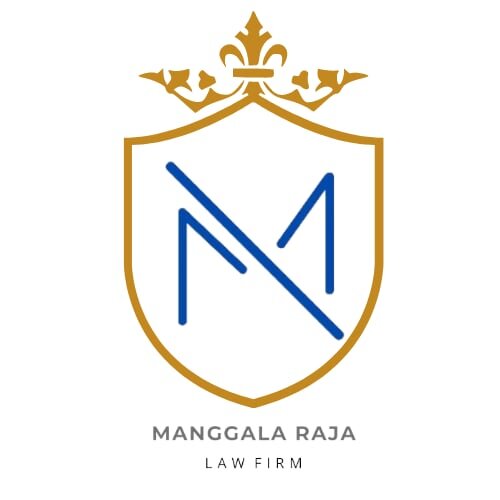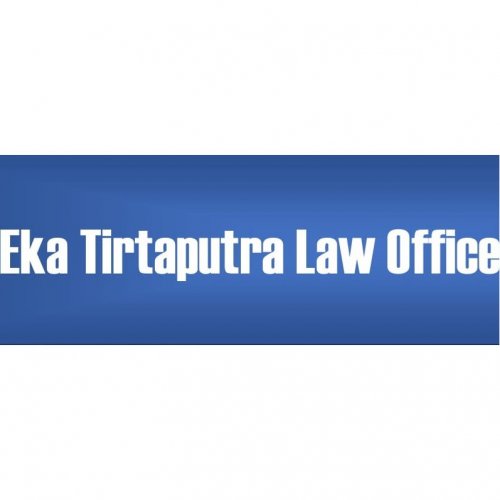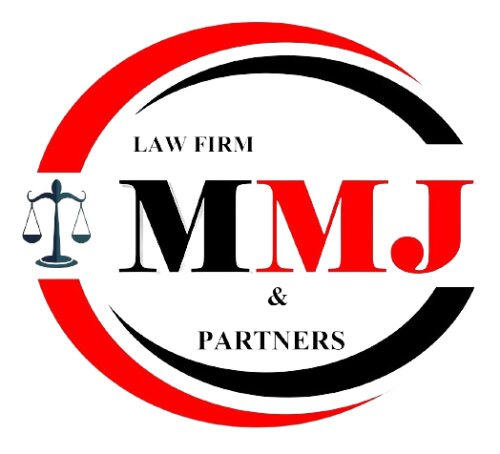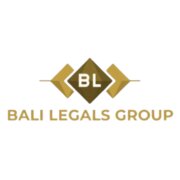Best Energy, Environment & ESG Lawyers in Jakarta
Share your needs with us, get contacted by law firms.
Free. Takes 2 min.
List of the best lawyers in Jakarta, Indonesia
About Energy, Environment & ESG Law in Jakarta, Indonesia
Energy, Environment & ESG (Environmental, Social, and Governance) law in Jakarta, Indonesia is a rapidly developing field driven by global and domestic concerns about sustainability, responsible business practices, and resource management. Jakarta, as Indonesia's capital and a major business hub, faces unique challenges in balancing economic growth, urbanization, and environmental protection. Laws and regulations in this area cover matters like energy generation and consumption, pollution control, natural resources management, waste management, greenhouse gas emissions, renewable energy policies, corporate social responsibility, and sustainable investment principles. The legal landscape is shaped by both national laws and local government policies that aim to foster sustainable development while attracting investment and protecting public welfare.
Why You May Need a Lawyer
Many individuals and businesses in Jakarta encounter complex legal issues related to energy, environmental management, and ESG compliance. You may need a lawyer for several reasons, including:
- Navigating regulatory approvals and licensing for energy projects or industrial activities
- Responding to environmental audits, inspections, or enforcement actions by authorities
- Dealing with allegations of pollution, environmental harm, or non-compliance with emissions standards
- Handling land acquisition or resource exploitation matters
- Advising on renewable energy investments or green project financing
- Drafting or reviewing contracts with ESG requirements
- Managing risks related to climate change disclosures and reporting obligations
- Resolving disputes with neighboring landowners or communities regarding environmental impacts
- Ensuring lawful disposal or recycling of hazardous waste
- Staying updated with evolving ESG standards required by investors and international partners
Engaging a legal professional early can prevent costly mistakes, ensure compliance, and provide strategic advice tailored to your specific situation.
Local Laws Overview
In Jakarta, the legal framework for energy, environment, and ESG consists of national laws, local government decrees, and sector-specific regulations. Key aspects include:
- Energy Law: Governed primarily by Law No. 30 of 2007 on Energy and Law No. 30 of 2009 on Electricity, along with supporting regulations on renewable energy, energy efficiency, and fossil fuel use. State and private sector participation in energy projects is regulated, with licensing requirements enforced by the Ministry of Energy and Mineral Resources.
- Environmental Protection: Law No. 32 of 2009 on Environmental Protection and Management (UU-PPLH) is the backbone of environmental regulation. It covers environmental permits, environmental impact assessments (AMDAL), emissions, waste management, and environmental restoration. Jakarta's local government also imposes specific rules for urban waste, water management, and air pollution control.
- ESG Policies: While ESG regulations are still developing, reporting on environmental and social matters is increasingly mandatory, especially for public companies under Financial Services Authority (OJK) regulations. Implementing responsible supply chain and governance practices is also becoming a best practice for businesses seeking to access international markets or green financing.
- Penalties and Enforcement: Violation of energy, environment, or ESG rules can result in administrative sanctions, fines, permit revocation, or even criminal charges, particularly for serious environmental offenses or corruption in project development.
Staying compliant requires ongoing monitoring of updates, as local policies can change on short notice in line with Jakarta's environmental and development agendas.
Frequently Asked Questions
What permits do I need for an energy project in Jakarta?
You will need several permits, including environmental permits (such as AMDAL), location permits, energy business licenses, construction permits, and possibly more depending on the project's scope and location. Consulting a lawyer can streamline the process.
How strict is environmental law enforcement in Jakarta?
Enforcement is getting stricter, especially in high-profile cases or areas prone to pollution and flooding. Authorities conduct regular inspections and can impose significant sanctions for non-compliance.
Are companies in Jakarta required to report on ESG matters?
Publicly listed companies are subject to ESG reporting requirements under the OJK. Many private companies are also adopting similar practices due to investor or customer demands.
What is an AMDAL and when is it required?
AMDAL is an Environmental Impact Assessment required for businesses or projects that may cause significant environmental impact. It is mandatory before obtaining certain operational permits.
What are the risks of ignoring environmental regulations?
Risks include heavy fines, suspension of business activities, reputation damage, and potentially criminal prosecution, especially for repeated or major violations.
Can foreign investors participate in energy and environmental projects in Jakarta?
Yes, subject to sectoral restrictions, investment regulations, and joint venture requirements. Foreign investors often need specific licenses and should comply with national and local content rules.
What should I do if my business is accused of pollution?
Contact a lawyer immediately. You may need to respond to regulatory agencies, assess the validity of the accusation, and explore remediation or defense strategies to mitigate legal and reputational consequences.
What local regulations apply to waste management in Jakarta?
Besides national waste laws, Jakarta's government has specific rules about household, industrial, and hazardous waste. Businesses must comply with collection, segregation, and disposal procedures set by local ordinances.
How can I ensure my operations are ESG compliant?
Stay updated on local and national regulations, implement clear internal policies, conduct regular audits, and seek legal or professional advice to address gaps in your processes or documentation.
Is renewable energy incentivized in Jakarta?
Indonesia offers certain incentives for renewable energy development, such as feed-in tariffs and tax benefits, especially for solar, wind, and bioenergy. These policies are subject to change, so legal advice is recommended to navigate eligibility and compliance.
Additional Resources
If you need further support, you may contact or consult with the following organizations:
- The Ministry of Energy and Mineral Resources (Kementerian ESDM)
- The Ministry of Environment and Forestry (Kementerian LHK)
- The Jakarta Environmental Agency (Dinas Lingkungan Hidup Provinsi DKI Jakarta)
- Financial Services Authority (Otoritas Jasa Keuangan or OJK) for ESG disclosure requirements
- Indonesian Chambers of Commerce or relevant business associations for industry-specific guidance
- ESG-focused NGOs and think tanks, such as Yayasan Kehati or Wahana Lingkungan Hidup Indonesia (WALHI)
Additionally, many Indonesian law firms and consultancies offer free initial consultations or educational webinars on these topics.
Next Steps
If you think you may need legal assistance related to Energy, Environment & ESG in Jakarta, it is important to take action quickly. Start by gathering all relevant documentation regarding your business operations, permits, contracts, and any communication with authorities. Identify your main concerns or questions, and consider making a list to discuss with a lawyer. You can then search for reputable legal practitioners or firms with expertise in energy, environment, and ESG matters. Many lawyers offer an initial consultation to understand your needs and propose a way forward.
Acting promptly helps protect your legal standing, prevents escalation of issues, and ensures your business remains compliant with evolving regulations. Seeking expert legal advice is especially important given the potential risks and penalties in this complex area of law.
Lawzana helps you find the best lawyers and law firms in Jakarta through a curated and pre-screened list of qualified legal professionals. Our platform offers rankings and detailed profiles of attorneys and law firms, allowing you to compare based on practice areas, including Energy, Environment & ESG, experience, and client feedback.
Each profile includes a description of the firm's areas of practice, client reviews, team members and partners, year of establishment, spoken languages, office locations, contact information, social media presence, and any published articles or resources. Most firms on our platform speak English and are experienced in both local and international legal matters.
Get a quote from top-rated law firms in Jakarta, Indonesia — quickly, securely, and without unnecessary hassle.
Disclaimer:
The information provided on this page is for general informational purposes only and does not constitute legal advice. While we strive to ensure the accuracy and relevance of the content, legal information may change over time, and interpretations of the law can vary. You should always consult with a qualified legal professional for advice specific to your situation.
We disclaim all liability for actions taken or not taken based on the content of this page. If you believe any information is incorrect or outdated, please contact us, and we will review and update it where appropriate.
Browse energy, environment & esg law firms by service in Jakarta, Indonesia
Jakarta, Indonesia Attorneys in related practice areas.

















